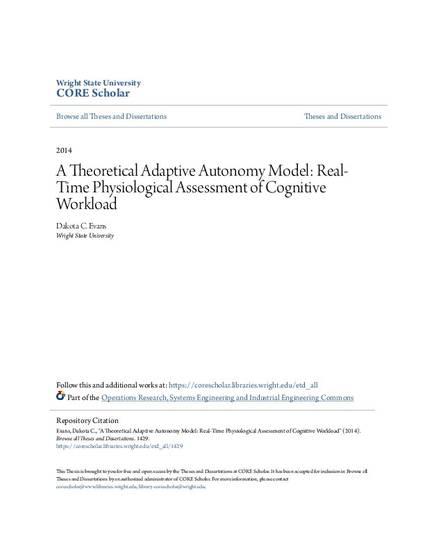
Thesis
A Theoretical Adaptive Autonomy Model: Real- Time Physiological Assessment of Cognitive Workload
(2015)
Abstract
Increases in modern-day system complexity, has led for a need to improve human performance and the interaction between the two. Three objectives: (1) to investigate physiological measures as indicators of cognitive workload, (2) to assess cognitive workload during human interaction with different autonomy levels, and (3) to develop a theoretical model for an adaptive autonomous system that changes with real-time cognitive workload measures were addressed. This effort seeks to improve human computer interaction by providing the human with the acceptable level of computer automation based on real-time cognitive state. Two experiments involved collection of measures of subject physiology, subjective survey data, and performances measures to assess cognitive workload. The first experiment involved assessment of workload during different task difficulty levels. The second experiment compared workload under different system automation levels. Fixation rate, electromyography measures, and heart rate standard deviation were found to include significant main effects for both experiments.
Keywords
- cognition,
- workload,
- model
Disciplines
Publication Date
Winter January 1, 2015
Degree
Master of Science in Engineering (MSEgr)
Department
Biomedical, Industrial & Human Factors Engineering
Citation Information
Dakota C Evans. "A Theoretical Adaptive Autonomy Model: Real- Time Physiological Assessment of Cognitive Workload" (2015) Available at: http://works.bepress.com/nasser_kashou/46/
